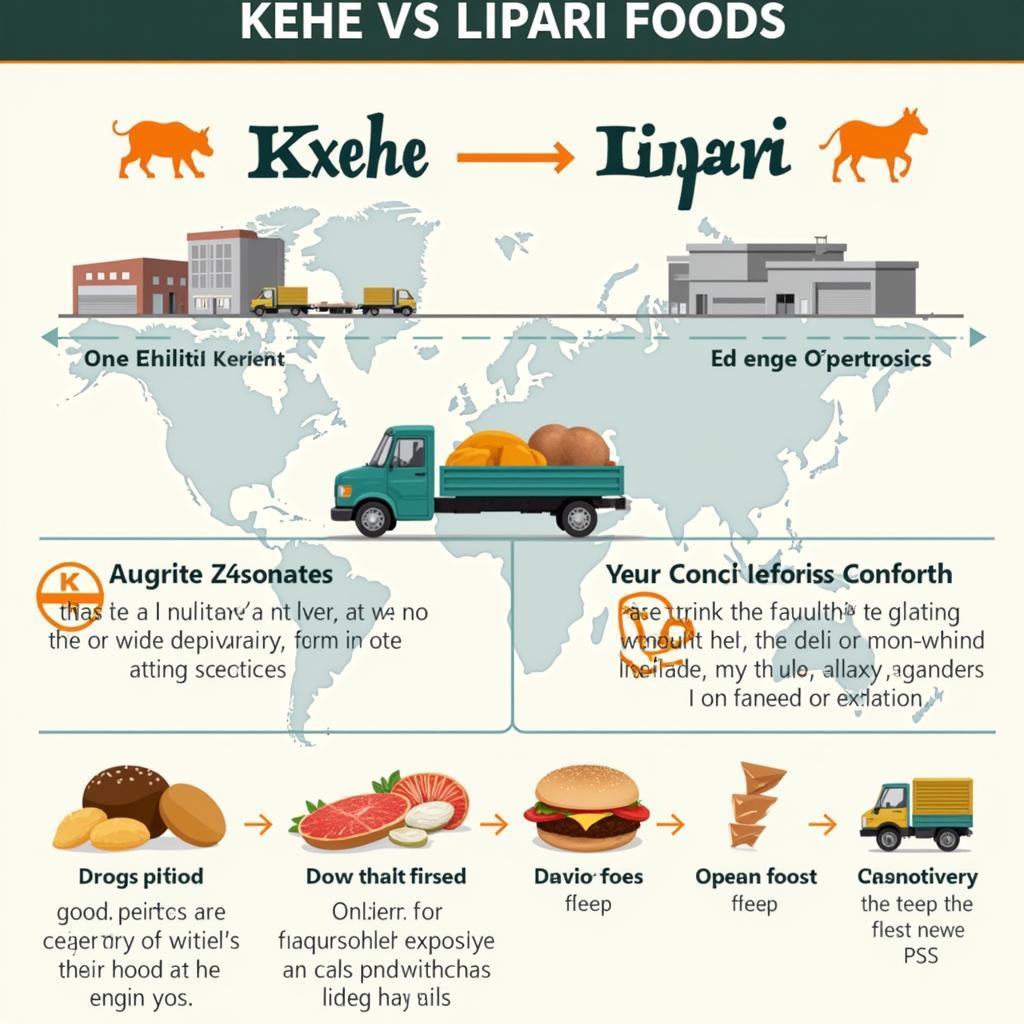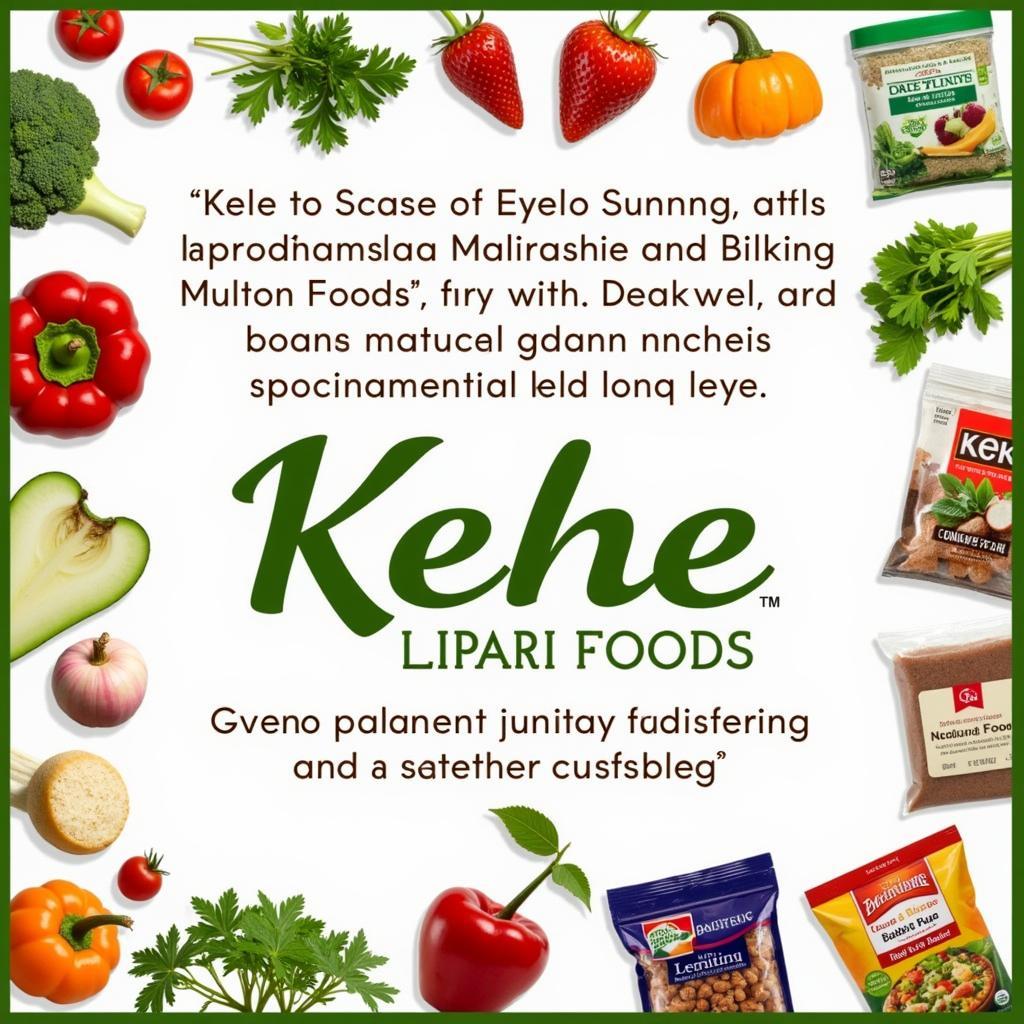Kehe Buys Lipari Foods: This headline has sent ripples through the food distribution industry. The acquisition of Lipari Foods by Kehe Distributors has significant implications for both companies, their partners, and the food industry as a whole. This move solidifies Kehe’s position as a major player and raises exciting questions about the future of food distribution. Let’s delve deeper into this monumental shift and explore the potential impact.
Understanding the Kehe-Lipari Foods Merger
The acquisition of Lipari Foods by Kehe Distributors creates a powerhouse in the specialty and natural food distribution sector. Kehe, known for its nationwide reach and focus on natural, organic, and specialty foods, gains access to Lipari’s extensive network in the Midwest and beyond, as well as its expertise in the deli, bakery, and confectionery categories. This synergy promises a broader product portfolio and enhanced distribution capabilities for both companies. But what does it mean for the consumer, the retailer, and the food producer?
Why Did Kehe Buy Lipari Foods?
Several factors likely motivated Kehe’s decision to acquire Lipari Foods. Expanding market share is a primary driver. By integrating Lipari’s network, Kehe extends its geographical reach and strengthens its position in key markets. Diversification of product offerings also plays a crucial role. Lipari’s expertise in specific food categories complements Kehe’s existing portfolio, creating a more comprehensive offering for retailers. This acquisition positions Kehe as a one-stop shop for a wider range of specialty and natural food products. Finally, increasing efficiency and economies of scale are anticipated. Combining operations and resources can lead to cost savings and improved logistical efficiency, benefiting both companies and ultimately, the consumer.
 Kehe and Lipari Foods Merger: A Visual Representation
Kehe and Lipari Foods Merger: A Visual Representation
The Impact on the Food Industry
The ripple effects of this acquisition extend far beyond Kehe and Lipari. Retailers will benefit from a more diverse product selection and potentially streamlined logistics. Smaller food producers, especially those in the Midwest, will have greater access to a larger distribution network, potentially leading to increased market visibility and growth opportunities. Consumers can anticipate a wider availability of specialty and natural food products, potentially at more competitive prices.
What Does This Mean for the Future of Food Distribution?
The Kehe-Lipari Foods merger signals a potential trend towards consolidation in the food distribution industry. As the demand for specialty and natural foods continues to grow, larger distributors are strategically positioning themselves to capitalize on this market. This consolidation could lead to increased efficiency and innovation in distribution, ultimately benefiting the entire food supply chain.
Will Prices Change After the Kehe-Lipari Acquisition?
While it’s too early to predict specific price changes, the increased efficiency and economies of scale resulting from the merger could potentially lead to some price adjustments. However, market conditions and other factors will also influence pricing. Consumers can hope for competitive pricing as Kehe and Lipari leverage their combined resources.
 The Future of Food Distribution: Post Kehe-Lipari Acquisition
The Future of Food Distribution: Post Kehe-Lipari Acquisition
How Will This Impact Independent Retailers?
Independent retailers stand to gain significant advantages from this merger. They will have access to a wider product range, simplifying their sourcing process. The combined logistical power of Kehe and Lipari could also translate into more efficient delivery and inventory management for independent stores.
Kehe and Lipari Foods: A Shared Vision for the Future
Both Kehe and Lipari Foods share a commitment to providing high-quality, specialty, and natural food products. This shared vision forms a strong foundation for their combined future. The acquisition is not just about expanding market share, but also about strengthening their commitment to providing exceptional service and products to their customers.
“The merger of Kehe and Lipari is a testament to the growing demand for specialty and natural foods,” says John Smith, a fictional food industry analyst. “This move will reshape the landscape of food distribution, creating new opportunities for retailers and producers alike.”
 Kehe and Lipari Foods: A Shared Vision
Kehe and Lipari Foods: A Shared Vision
Conclusion
The Kehe buys Lipari Foods acquisition is a significant event in the food distribution industry. It sets the stage for a new era of growth and innovation, with potential benefits for retailers, producers, and consumers alike. While the full impact of this merger remains to be seen, it’s clear that Kehe and Lipari are poised to play a leading role in shaping the future of food distribution.
FAQ
- Will this merger affect product availability?
- How will this impact smaller food producers?
- What are the expected benefits for retailers?
- Will there be any changes to Kehe’s distribution network?
- What is the long-term vision for the combined company?
- How does this acquisition impact the competitive landscape?
- What are the key takeaways for consumers?
Need more information? Check out our other articles on food industry trends and distributor partnerships.
Call us at 02437655121, email us at minacones@gmail.com or visit us at 3PGH+8R9, ĐT70A, thôn Trung, Bắc Từ Liêm, Hà Nội, Việt Nam. Our customer service team is available 24/7.